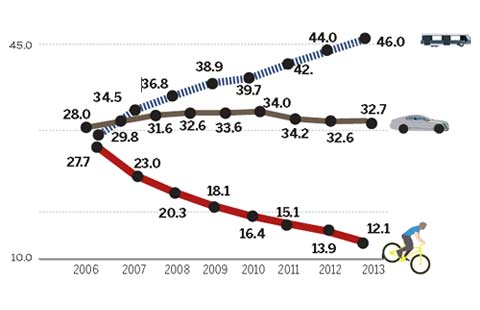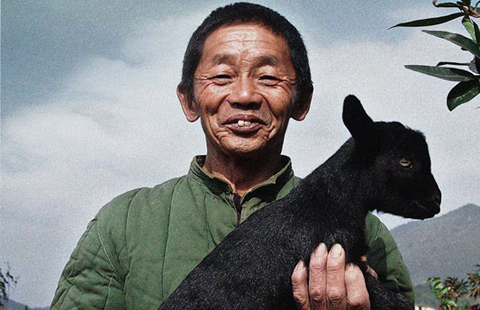Beijing's steadfast support
Updated: 2014-09-23 07:21
(China Daily)
|
|||||||||||
A high-powered delegation of leaders from Hong Kong began a three-day visit to Beijing on Monday. They were accorded a warm reception on their arrival. In his meeting with the delegation, President Xi Jinping reaffirmed continuity of the central government's Hong Kong policy and its support for advancing democracy in the special administrative region (SAR).
In the 17 years after its return to the embrace of the motherland, Hong Kong's post-handover journey has not been smooth sailing. It has surmounted a spate of challenges, including the Asian financial crisis which threatened to bring the SAR to its knees. Whenever Hong Kong found itself in need of assistance and help, it invariably received unreserved support from the central government. The latest package of more than 30 supportive measures came in 2012, covering areas of trade, finance, education, science, technology, tourism and Hong Kong-Guangdong cooperation.
Hong Kong has not always been on the receiving end of support. It has played a unique role in helping the mainland develop its economy, especially during the early years of the country's reforms and opening-up. In his meeting with the business leaders, Xi pointedly acknowledged the magnificent contribution Hong Kong has made to the country.
The central government's support was obvious not merely in the area of the economy, but also in advancing democracy in the SAR. Take universal suffrage for example. The notion of electing the SAR's Chief Executive by 'one person, one vote' was never mentioned in the Sino-British Joint Declaration. It was Beijing who wrote it into the Basic Law, thus making it constitutionally possible for all eligible voters in Hong Kong to have a say in choosing their leaders. This is in stark contrast with the fact that all 28 British governors who ruled Hong Kong prior to 1997 were brought from London without an ounce of democratic input from the people of Hong Kong.
The latest decision made on Aug 31 by the National People's Congress Standing Committee set out the direction for the SAR's electoral reform. It raised some concerns about whether the central government is mulling changes in its Hong Kong policy. The answer lies in President Xi's opening remarks in his meeting with the SAR's business leaders: The policy didn't change and it won't change.
Related Stories
Xi meets Hong Kong delegation 2014-09-22 21:42
Hong Kong SAR can be a democratic model 2014-09-19 10:12
Hong Kong technology cooperation delegation visits Qingdao 2014-09-18 16:00
Let's not allow Hong Kong to come between us 2014-09-16 11:09
Today's Top News
China will not alter economy policy
Blasts leave 2 dead in Xinjiang
Chinese arrested in Indonesia on terror charges
NASA is back at Mars
US group seeks 'no vacancy' for China's hotels
Scottish voters have rejected independence
Alibaba set to soar at $68 per share
Xi and Modi map out new era
Hot Topics
Lunar probe , China growth forecasts, Emission rules get tougher, China seen through 'colored lens', International board,
Editor's Picks

|

|

|

|

|

|





